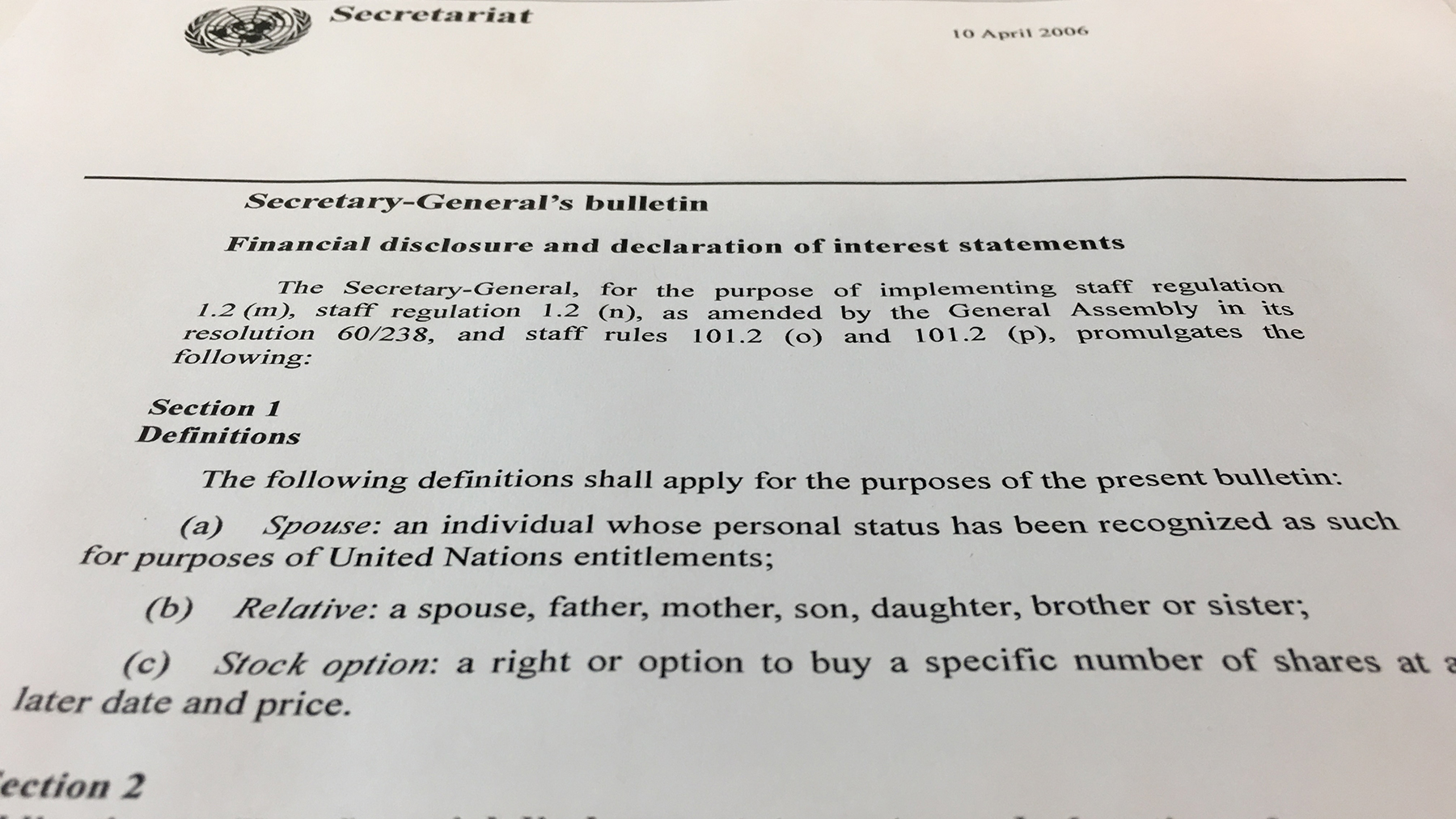THE UN FINANCIAL DISCLOSURE PROGRAMME (FDP)

The UN Financial Disclosure Programme (FDP) is designed to identify, resolve and mitigate conflict of interest risks arising from staff members’ personal financial assets, liabilities, investments, and outside activities. The adoption of public and corporate governance best practices of transparency and disclosure contributes to public confidence. Financial disclosure is a well-established practice in financial institutions, governments, and other public and private sector organizations.
We as UN staff members must avoid situations where we benefit personally or allow others to benefit personally from the decisions we make on behalf of the Organization. This is especially important in matters related to financial interests. As staff members, regardless of whether we participate or not in the FDP, we must refrain from managing or holding financial interests in any business, if either the individual or the business has the opportunity to benefit from such an association. We should seek guidance from the Ethics Office if we believe we have a possible financial conflict of interest.
Under the FDP, participants selected based on their roles and responsibilities are required to complete a confidential online annual disclosure of the assets, liabilities, outside activities, and affiliations for themselves, their spouses and dependent children.
Programme Participants – Staff Members required to complete an annual disclosure
How to File
The disclosure statement by external reviewers may lead to advising staff members to divest themselves of holdings, or to recuse themselves from a particular activity or aspect of their official functions.
VERIFICATION PROCESS
Each year, a small percentage of the total number of Financial Disclosure Programme participants is randomly selected for the verification process, in addition to the regular review process. Those randomly chosen are asked to provide third-party documentation for all items that they have disclosed. These additional documents are requested in order to verify the accuracy and completeness of information disclosed by participants. The goal of verification is to ensure that staff members are using due diligence in the completion of their financial disclosure statements.
VOLUNTARY PUBLIC DISCLOSURE
Both Secretary-General and Deputy Secretary-General have posted their reviewed Financial Disclosure Programme financial disclosure statements publicly since 2007. While public disclosure is not a requirement of the FDP, the Secretary-General has encouraged UN senior officials at the grades of Under Secretary-General and Assistant Secretary-General to voluntarily publish their confidential financial disclosure statements as well.
The Secretary-General considers public disclosure to be an important voluntary initiative, as it assures the public and Member States that UN staff members — in the discharge of their official duties — will not be influenced by any consideration associated with their private interests.
Links to the statements of those senior UN officials who have elected to participate in the Voluntary Public Disclosure initiative available at Public Disclosure | United Nations Secretary-General.
For questions or concerns, contact the UN Ethics Office
Helpline: available on iSeek or email:ethicsoffice@un.org
FINANCIAL DISCLOSURE REQUIREMENTS FOR THE PRESIDENT OF THE GENERAL ASSEMBLY
Pursuant to General Assembly resolution 70/305, the Ethics Office facilitates the submission of the financial disclosure statements of the President of the General Assembly. The President of the General Assembly is required to provide financial disclosures upon assumption and completion of his or her duties, in line with the United Nations financial disclosure programme.
